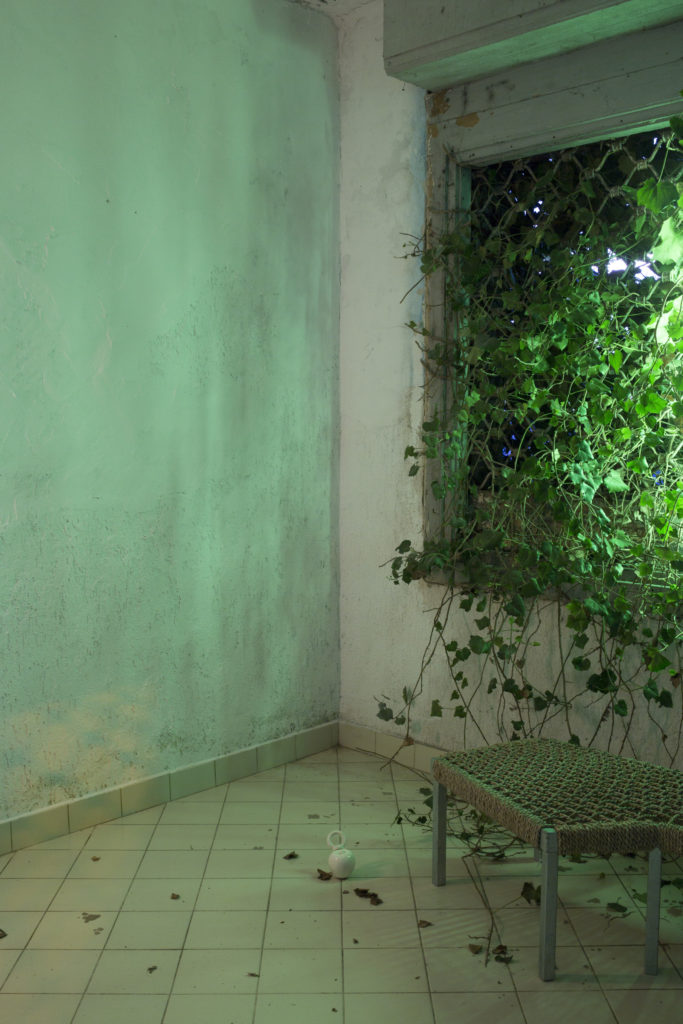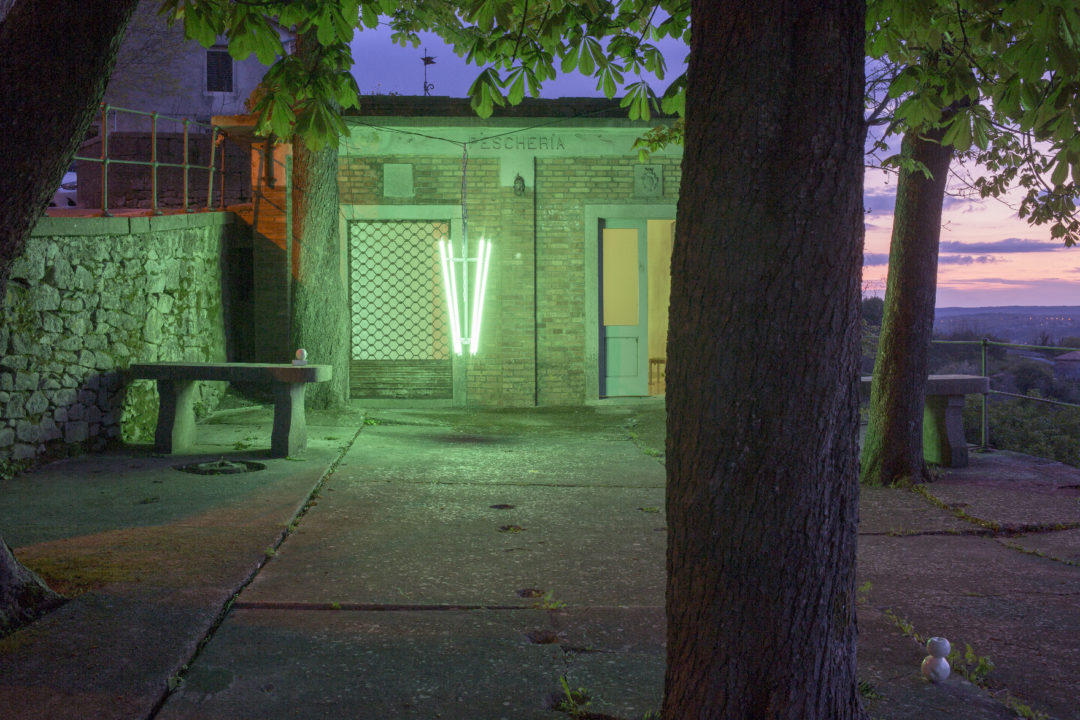Cristian Andersen
Milk for flowers, 2023
Installation of LED tubes, steel, aluminium, wicker, industrial ceramic
Courtesy of the artist
Supported by Swiss Arts Council Pro Helvetia
The Jewish architect Gustavo Pulitzer Finali, who designed the masterplan of Raša for Benito Mussolini, emigrated in 1938 to the USA to decorate Italian restaurants in New York and the villas of film stars in Hollywood. After the war he returned to Trieste and was responsible for the interior design of famous transatlantic steamships, namely the Andrea Doria, writing another chapter in Istria’s eventful history, which is in the focus of Landscapes of Desire. Starting from these futuristic furnishings and public architecture – also by nameless producers and designers – still present in Raša, Labin and Pula, Swiss-Danish artist Cristian Andersen (*1974) has developed an artistic reappraisal of the aesthetics of everyday life in Labin’s vacant Pescheria (fish shop) from today’s deconstructivist point of view. His sublime designs, analogous to the Futurists, oscillate between everyday practicality and beauty and exhibit that optimistic spirit that seems to have been lost in the wars of the 20th century in Istria.

Cristian Andersen, Milk for flowers, 2023. Photo by Jules Spinatsch.
Židovski arhitekt Gustavo Pulitzer Finali, koji je za Benita Mussolinija projektirao Rašu (Arsia), emigrirao je 1938. u SAD kako bi dekorirao talijanske restorane u New Yorku i vile filmskih zvijezda u Hollywoodu. Nakon rata vratio se u Trst i bio odgovoran za dizajn interijera poznatih prekooceanskih parobroda, poput “Andrea Doria”, ispisujući još jedno poglavlje u događajima bogatoj povijesti Istre, koja je u fokusu “Krajobraza želje”. Polazeći od futurističkog namještaja i javne arhitekture – bezimenih proizvođača i dizajnera – još uvijek prisutnih u Raši, Labinu i Puli, švicarsko-danski umjetnik Cristian Andersen (*1974.) izvršio je u napuštenoj labinskoj Pescheriji (ribarnica) umjetničko preispitivanje estetike svakodnevnog života s današnjeg dekonstruktivističkog gledišta. Njegovi plemenito dizajnirani oblici, slični onima futurista, osciliraju između svakodnevne praktičnosti i ljepote te predstavljaju onaj optimistični duh, koji kao da je izgubljen u Istri tijekom ratova u 20. stoljeću.

